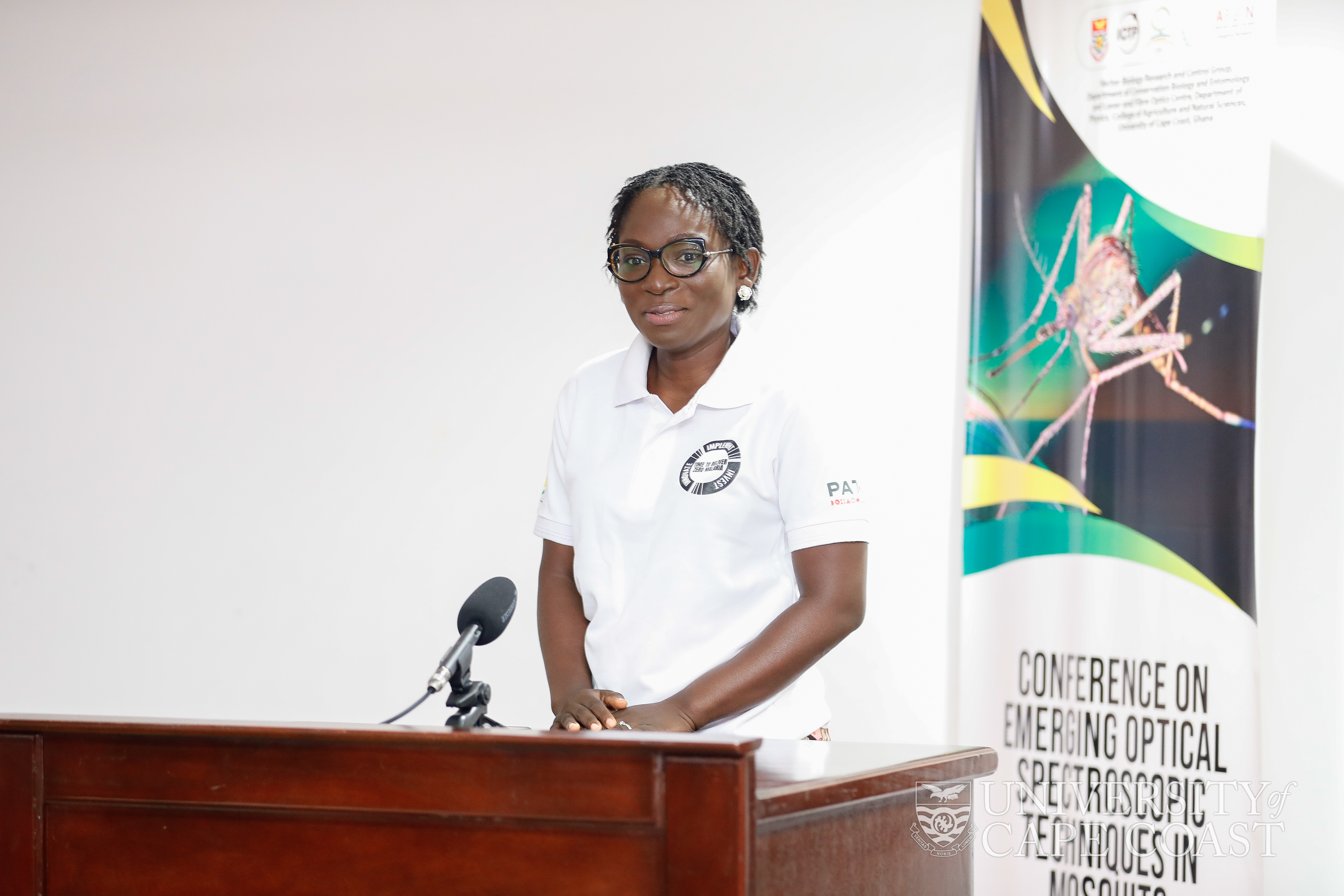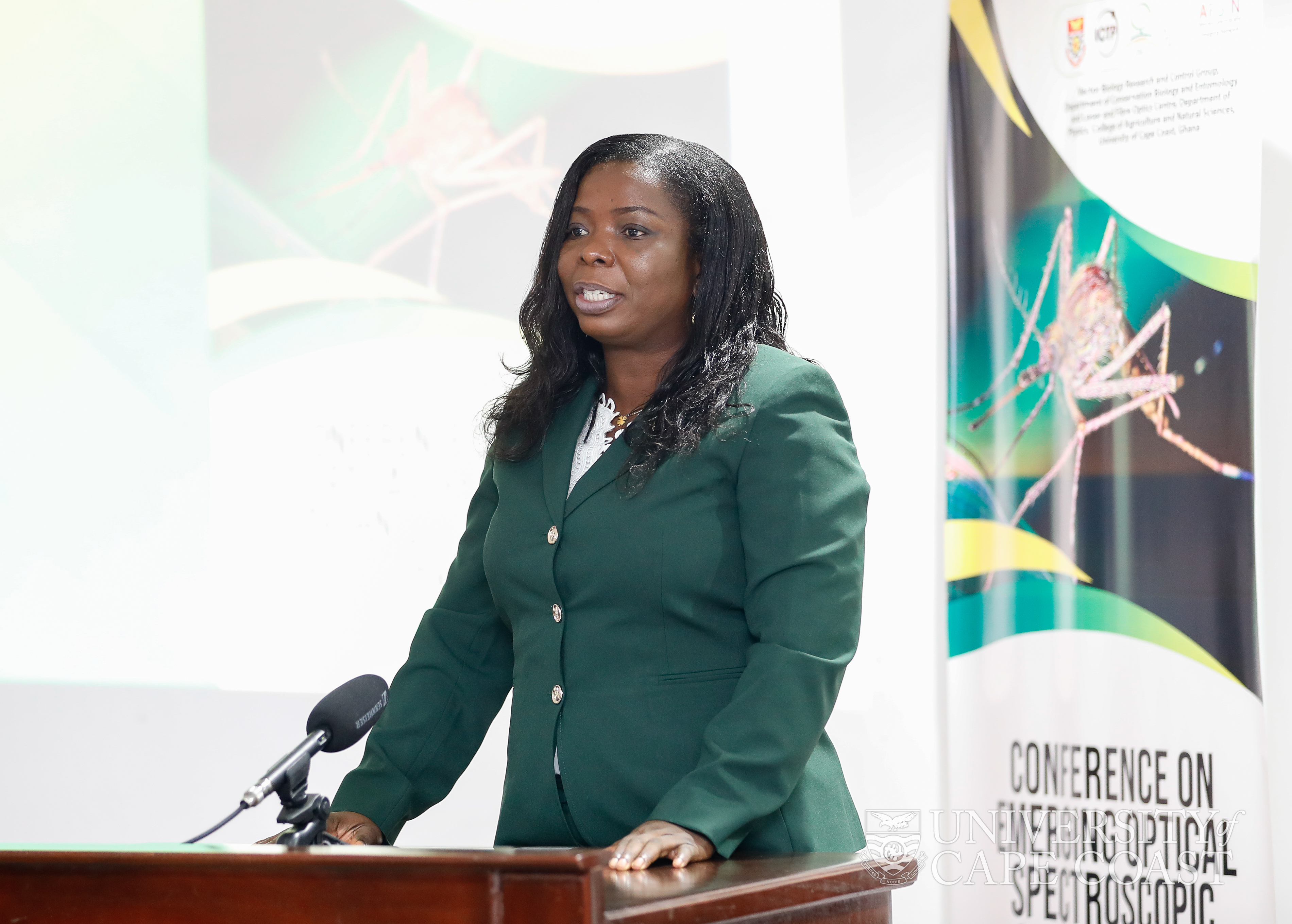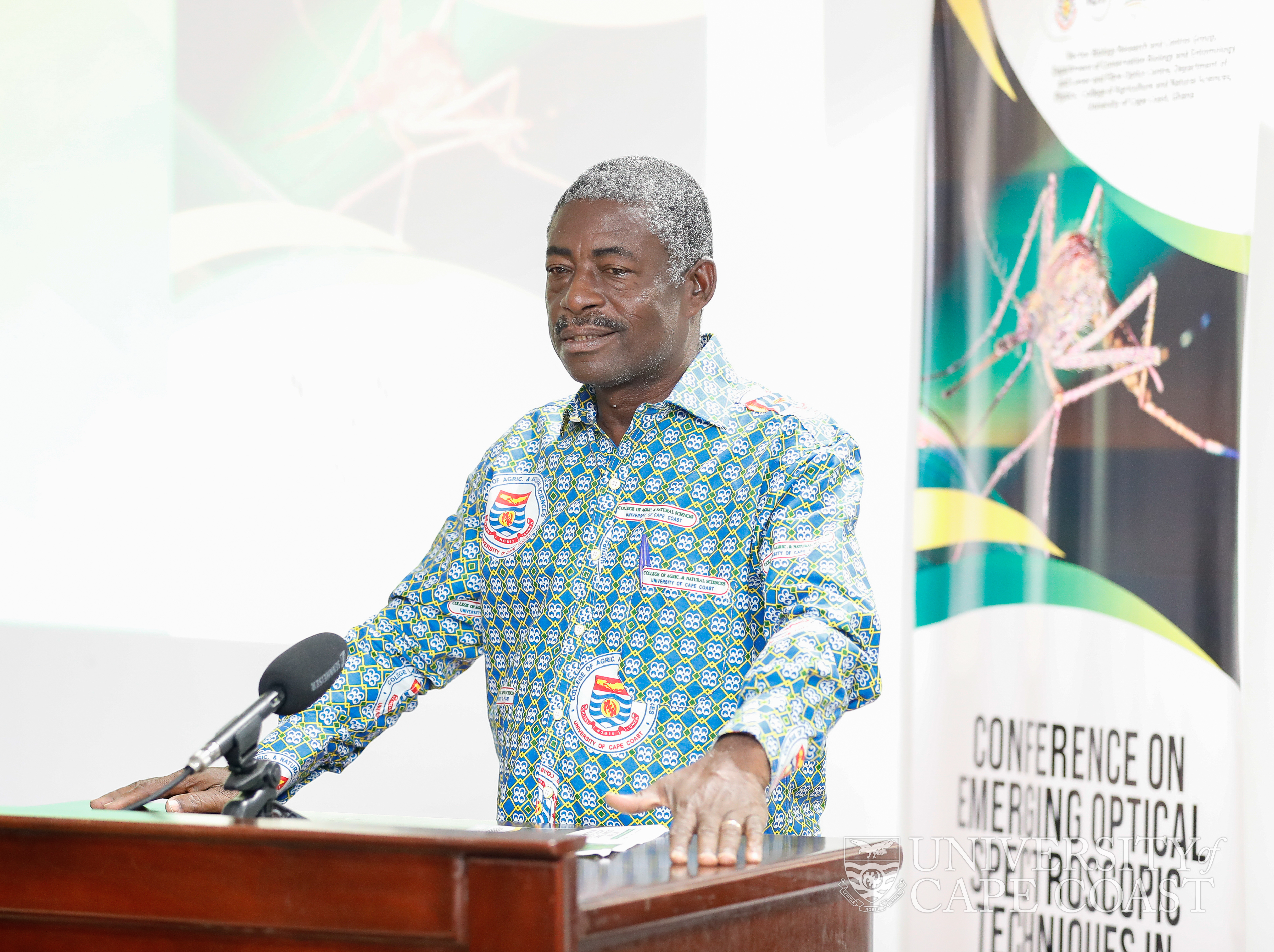The Department of Conservation Biology and Entomology of the University of Cape Coast (UCC) has accelerated efforts aimed at reducing malaria prevalence in the country.
Malaria, according to the Department, remained a public health concern and a leading cause of death in Ghana.
Ms. Otubea Akrofi
Against that backdrop, the Department, in conjunction with the Laser and Fibre Optics Centre at the Department of Physics-UCC, held a conference on Emerging Optical Spectroscopic Techniques in Mosquito Surveillance.
The confab, to commemorate the 2023 World Mosquito Day, was to explore low-cost approaches for mosquito surveillance using optical spectroscopic techniques for a malaria-free nation.
Speaking at the event, a Deputy Chief Medical Entomologist on National Malaria Elimination Programme of the Ghana Health Service, Ms. Otubea Akrofi, said Ghana had set an ambitious target to eradicate malaria from the country by 2030.
She said the disease attacks everyone within its reach but mostly kills children.
Providing statistics, She added that malaria prevalence had reduced from 27.5 per cent in 2011 to 8.6 per cent in 2022, while mortality had reduced by 95 per cent between 2012 and 2022, representing a decline from 2,799 deaths in 2012 to 151 in 2022.
Ms. Akrofi observed that intensive efforts had been made to control the disease through strengthening interventions that had helped in the control of malaria over the years and the introduction of new strategies.
Some participants in the conference
The new interventions, She pointed out, included mass drug administration, post-discharge malaria chemoprevention and scaling up malaria vaccination, among others.
Ms. Akrofi mentioned the conventional interventions to include larvae source management, distribution of long-lasting insecticide-treated mosquito nets, research and indoor residual spraying, social behaviour change campaigns and vector surveillance.
She explained that malaria must not be neglected since the mosquitoes causing the ailment were still within our communities.
Ms. Akrofi called on Ghanaians to provide the National Malaria Elimination Programme and other programmes such as neglected tropical diseases (NTDs) with the needed data to take informed decisions and monitor the current interventions.
She underscored the need to obtain countrywide data on all mosquito surveillance , including data being churned by research institutions to better make informed decisions for Ghana.
Prof. Rofela Combey
The Head of the Department, Prof. Rofela Combey, in her remarks, commended the malaria control programme and its implementing partners for ensuring continuity of essential malaria interventions.
She said the country, however, needed to scale up the various malaria initiatives for more effective control programming towards pre-elimination.
A professor of Physics, Prof. P.K. Buah-Bassuah, in a remark, lauded the Department of Conservation Biology and Entomology for partnering with the Department of Physics to carry out the initiative.
Prof. P.K Buah-Bassuah





